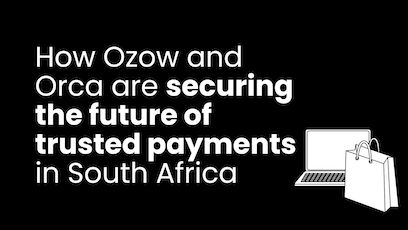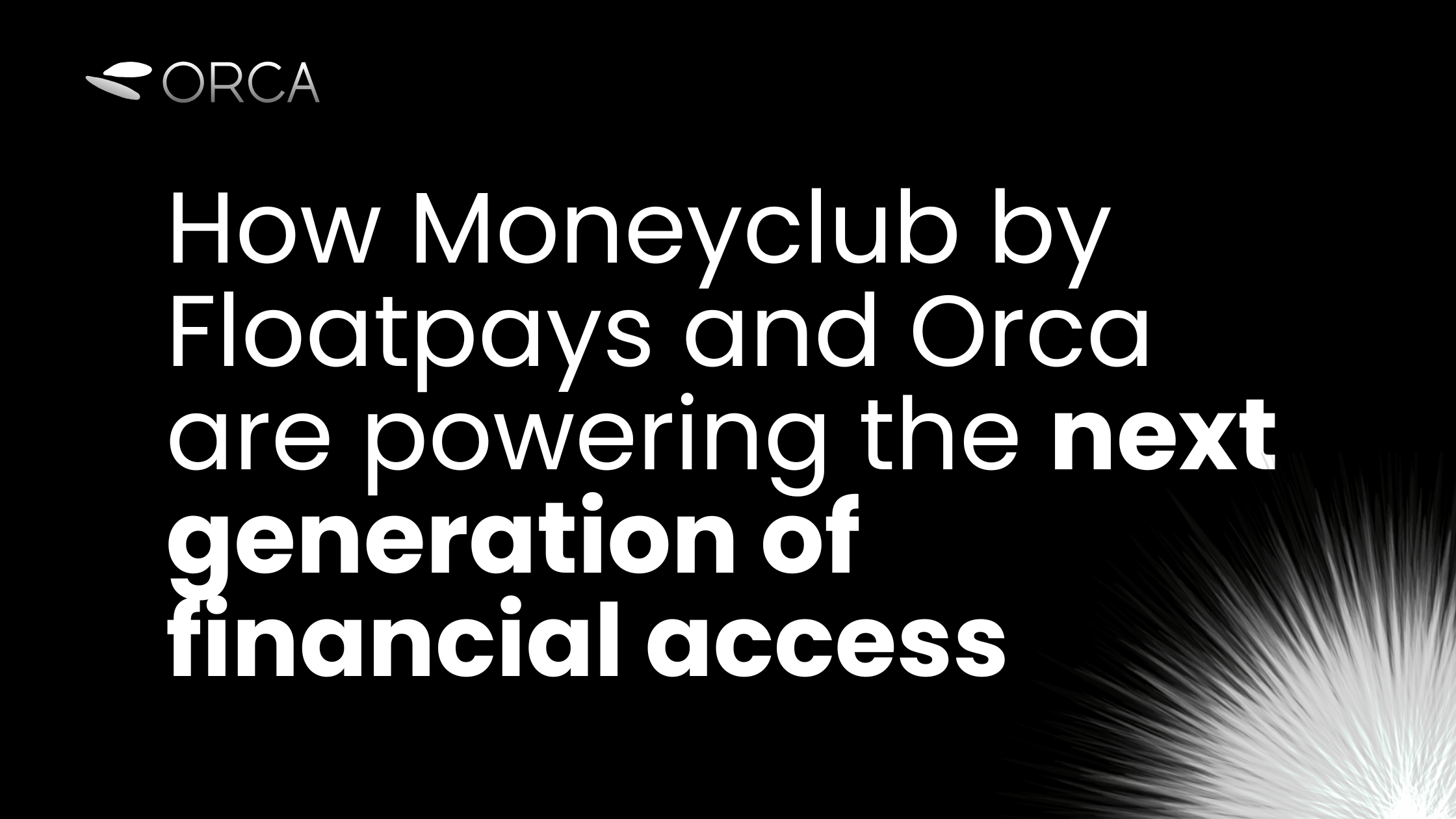
In high-growth fintech markets like Africa and Latin America, mobile wallets are unlocking new financial opportunities for millions. They’re not just changing how people pay, they’re redefining what it means to participate in the digital economy.
But with this progress comes risk. As mobile money adoption skyrockets, so does fraud. But this isn’t a risk to fear; it’s a reality to engineer against.
That’s where Orca Fraud steps in: delivering intelligent, region-aware fraud solutions built specifically for emerging markets.
Mobile money: The cornerstone of financial inclusion
Across Africa and Latin America, mobile wallets have emerged as the most powerful drivers for financial inclusion. From M-PESA in Kenya to Pix in Brazil, these platforms are reaching users that traditional banks haven’t been able to serve, and as a result, are reshaping payment behaviour at scale.
Africa: A mobile-first economy
In Africa, mobile phone penetration hit 61% in 2023, yet only 54% of adults had access to a traditional bank account. This disparity has fuelled massive adoption of mobile money solutions. Sub-Saharan Africa alone now accounts for nearly 50% of the world’s registered mobile money accounts, with a staggering 835 million users processing about $2.5 billion daily (GSMA, 2023).

The majority of these services are delivered through agent networks and basic mobile phones, offering access to finance in ways traditional institutions haven’t managed.
Latin America: Instant and intelligent payments
In Latin America, digital wallet adoption is accelerating across major markets. According to EBANX, wallet-based payments already account for 10% of all online transaction volume in the region, equivalent to USD 66 billion, and are expected to reach USD 108 billion by 2027. Countries like Brazil, Argentina and Colombia are leading this shift. As digital commerce grows and younger, mobile-first consumers dominate the market, wallets are becoming a key enabler of online purchases across the region. In some countries, wallets are also integrating with popular local payment methods, further expanding their reach and relevance.
A standout example is Pix, Brazil’s instant payment system, which has become the country’s most-used payment method in just five years. To illustrate how impactful Pix has become, in November 2024, Pix processed 239.9 million Black Friday transactions, worth over $21.6 billion. This was more than double the previous year’s volume (Reuters, 2024).
And things keep moving. In June 2025, the introduction of Pix Automático - a feature that allows recurring, automated payments - marks another important step. While it opens up new use cases for subscriptions, bill payments and more, it also introduces new fraud risks.
As adoption grows, so do the threats
The same features that make mobile wallets powerful - accessibility, speed and openness - also make them vulnerable as fraudsters constantly seek new ways to exploit these platforms as they scale.
Here are some of the most common fraud types in mobile wallet ecosystems:
- SIM swap attacks: intercepting OTPs by hijacking mobile numbers
- Synthetic identities: blending real and fake data to open accounts
- Phishing and social engineering: tricking users into sharing sensitive info
- Fake QR codes or NFC redirects: misdirecting payments to fraudsters
- Mule accounts and laundering: exploiting informal agent networks
Recurring payments, like those enabled by Pix Automático, also introduce new risks. A compromised account can lead to ongoing unauthorised payments that fly under the radar. Fraudsters may also pose as merchants, tricking users into setting up automatic transfers.
Why traditional fraud tools fail in Africa and LatAm
Most fraud tools were built for developed markets where connectivity is stable, credit systems are well-established, and payments follow predictable patterns. But for the most part, in Africa and Latin America, the context can be quite different - and legacy systems often can’t keep up.
Some of the key limitations of legacy fraud systems include:
- Limited connectivity: Many users operate in areas with poor internet access. Real-time fraud checks that rely on constant connectivity can fail or miss critical signals
- Thin credit infrastructure: Formal credit histories and ID systems are often incomplete or unavailable. This makes identity verification harder and pushes fraud tools to rely on behavioural and device-based signals instead
- Agent-led transactions: A large volume of transactions happen through in-person agents, not just inside the app. These flows are harder to monitor and are vulnerable to impersonation or collusion
- Local user behaviour: Spending patterns, shared devices and multiple SIM use are common and legitimate, but are often tagged as suspicious by systems trained on Western data
According to EBANX, by 2027, alternative payment methods (APMs) such as digital wallets, vouchers, and instant transfers will have surpassed cards in usage across all macro-regions of emerging markets, including Africa, Asia, and Latin America. Traditional tools built for cards and banks are simply not designed for these formats.
Wiza Jalakasi, Director of Africa Expansion at EBANX, underscores why this shift in payment behaviour calls for a new approach to fraud prevention:
“As more people enter the digital economy through mobile-first and alternative payments, the old fraud prevention playbooks are no longer enough. We need solutions tailored to the unique realities of emerging markets, where shared devices, evolving payment flows, and a strong reliance on local methods demand a more nuanced and intelligent approach to security. The goal is to build trust and ensure sustainable growth, without adding friction to the customer journey.”
He adds: “This is why EBANX and Orca’s approach to fraud prevention is so important: it combines the right mix of regional intelligence and advanced technology to help businesses ensure the security and integrity of every transaction.”
Orca: Tailored fraud prevention for emerging markets
We built Orca with the unique realities and nuances of African and Latin American fintechs at the forefront. By combining local intelligence, real-time analytics and AI-powered decision-making, Orca helps you stay one step ahead with:
- Real-time anomaly detection that stops fraud as it happens
- Behavioural analytics that flag suspicious activity without blocking genuine users
- Multi-layered authentication methods including biometrics, device fingerprinting and adaptive MFA
- Fast, seamless integration designed to fit modern fintech stacks
- Shared fraud intelligence to connect with other regional players to outsmart fraud rings
- Automated compliance and KYC empowering you to stay on top of evolving regulations
This approach is already powering real-world solutions, like Sling Money. Cross-border remittance platform, Sling Money, used Orca to launch in 20+ countries with fraud prevention baked in from day one. Using Orca’s API-first tools, they could instantly flag risky behaviour, tailor onboarding flows by market, and stay compliant without slowing down. The result? Faster time to market, safer transactions and stronger customer trust.
The cost of fraud and the ROI of prevention
In 2023, global fraud losses in digital payments topped $48 billion (Juniper Research), and the fastest growth came from emerging markets.
Fraud impacts more than just the bottom line, potentially resulting in a loss of customer trust, regulatory investigations and fines, as well as reputational damage.
The payoff of strong fraud prevention is clear. From higher customer satisfaction and loyalty, smoother relationships with regulators, and safer, faster market expansion, it’s crucial for businesses to prioritise fraud prevention alongside a strong product and service offering.
Fintech’s future depends on localised security
Africa and Latin America aren’t just catching up, they’re shaping the future of global fintech. Mobile wallets are at the heart of this transformation, unlocking new ways to pay, save and access financial services. But as adoption grows, so do the risks. Growth without protection is a risk no fintech can afford.
With Orca, you’re not just reacting to fraud, you’re staying ahead of it. Our tools are purpose-built for the realities of emerging markets, helping you navigate complex threats and scale securely.
Future-proof your mobile wallet operations. Get a free fraud assessment with Orca.

.png)
.png)


.png)
%20(3).png)
%20(1).png)
.png)
.png)
%20(1).png)

%20(2).png)